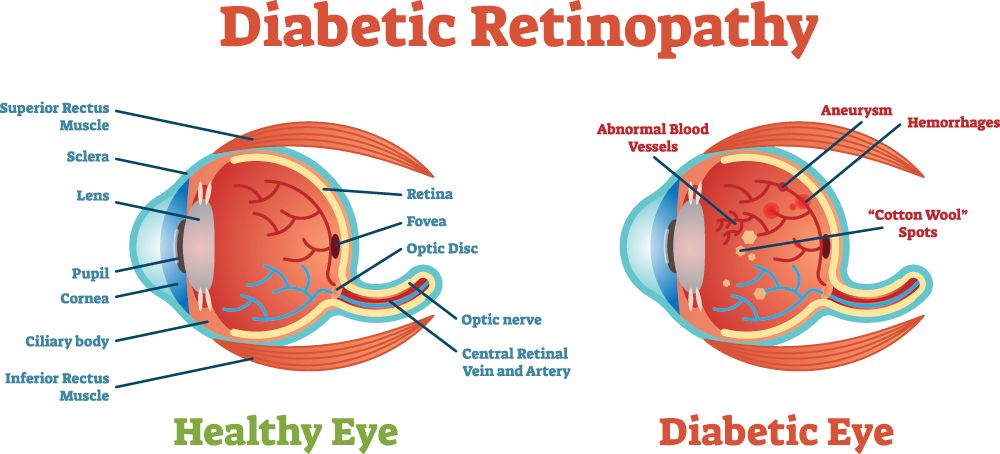Home » Diabetes & The Eye
Diabetes is a disease that occurs either when the pancreas does not secrete enough insulin—the hormone that regulates the level of sugar (glucose) in the blood— or the body cannot properly process it. Patients with diabetes are more likely to develop eye problems such as cataracts and glaucoma, but the disease’s effect on the retina is the main threat to vision. Most patients develop diabetic changes in the retina after approximately ten years of having the disease, and the effect of diabetes on the eye is called diabetic retinopathy.
Over time, diabetes can damage the blood vessels in the back of the eye, and this damage is known as diabetic retinopathy. The effect of diabetic retinopathy on vision dramatically varies depending on the stage of the disease.

The treatment for diabetic retinopathy is dependent on the stage of the disease and the specific problem that requires attention. Our retina specialists, Dr. Ponce and Dr. Phillpotts, monitor the progression of the disease based on diagnostic testing and observation to make decisions for the appropriate treatment.
The most common treatment options for diabetic retinopathy are anti-vascular endothelial growth factor inhibitors, known as anti-VEGF medications. These medications are injected directly into the eye to stop the formation of abnormal blood vessels and leakage. Injectable steroids can also be effective in the treatment of diabetic retinopathy.
We proudly serve patients at our eye clinics in Tarpon Springs, Tampa, St. Petersburg, Clearwater, Spring Hill, Wesley Chapel and in The Villages at Lake Sumter Landing and Brownwood. Our philosophy is to treat those we serve as though they are a member of our own families. From the first phone call or email to the follow-up visit and beyond, we’re here to serve you. Our goal is to help preserve and optimize your vision.

